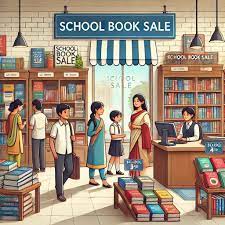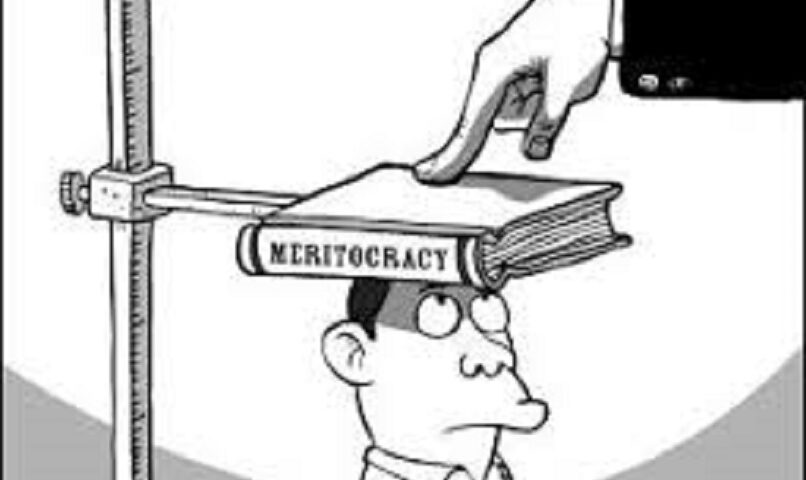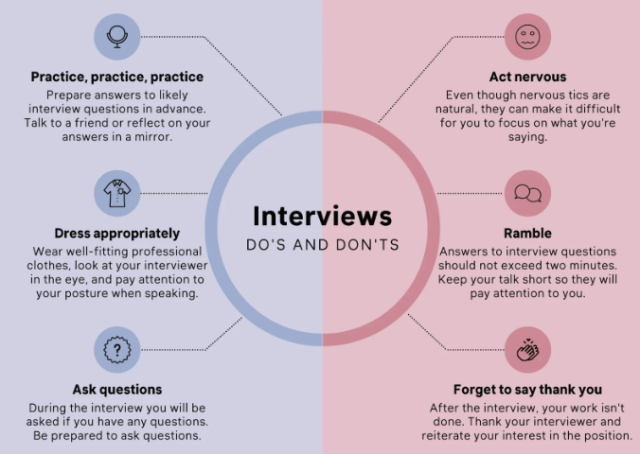Despite government orders, private institutions continue to prescribe overpriced supplementary textbooks—fueling parental outrage and exposing the unchecked commercialisation of education in Kashmir.
By: Javid Amin | 03 November 2025
A Recurring Burden on Parents
As the new academic session opens in the region of Jammu & Kashmir Board of School Education (JKBOSE)’s jurisdiction, a pressing concern is again dominating discussions among parents of school-going children: the practice by many private schools of prescribing additional textbooks from non-board publishers, often at high costs. This pattern, according to many parents and education observers, highlights a deeper issue—the unchecked commercialisation of education.
Parents across Kashmir allege that despite clear government directives mandating the use of JKBOSE-approved textbooks, numerous private schools continue to demand supplementary books, pushing the financial burden onto families who are already struggling. The situation is particularly troubling given that textbooks prescribed by JKBOSE are relatively affordable and widely available, raising questions about why such additional requisites persist.
In this article, we will explore the background, the legal framework, parental voices, the root causes, and possible solutions to this phenomenon. The goal is to provide a thorough, informative, and readable examination of what is happening—and why it matters.
What the Parents Are Saying
The Burden of Extra Books
Parents interviewed in various parts of Kashmir report a consistent trend: private schools prescribing extra textbooks beyond the list approved by JKBOSE. One parent from Srinagar, Muhammad Arif, points out: “If a full set of textbooks prescribed by JKBOSE for primary classes costs only around Rs 600 to Rs 700, a single additional textbook costs Rs 500 to Rs 600.”
This means that a single extra book may cost nearly as much as the entire official set—a fact that many parents view as unfair and exploitative.
Another parent noted that some schools affiliated with JKBOSE claim to follow the Cambridge Curriculum (an international syllabus) and accordingly prescribe a full set of books that cost between Rs 7,000 and Rs 8,000. “This is beyond the reach of most parents,” the parent remarked.
Why Are Parents Upset?
The complaints from parents fall into several recurring themes:
-
Affordability: While the official JKBOSE set is modestly priced, the supplementary books raise overall costs significantly. Many families struggle with these additional expenses.
-
Transparency: Parents often say they were not given clear justification for why these books were necessary, leading to a sense of imposition.
-
Necessity: Many of the extra books are not part of the board’s prescribed syllabus—parents question their academic value and label them as “unnecessary.”
-
Commercial motives: There is an underlying suspicion that schools introduce such books to profit via commissions from publishers or local bookshops.
These combined factors contribute to a feeling among parents that their children’s education is being commercialised at their expense.
What the Law and the Board Say
JKBOSE’s Mandate
Under the Jammu & Kashmir Board of School Education Act, 1975, the Board is empowered to “prescribe courses of instruction, curricula, syllabi and textbooks” for all academic levels—from primary through higher secondary.
This means that legally, schools affiliated to JKBOSE are bound to use the textbooks approved or prescribed by the Board. In other words, the law does not leave room for schools to arbitrarily adopt alternate textbooks without board approval.
The Board’s Directive
In March 2024, JKBOSE issued a directive to its sub-offices to undertake inspections to ensure that private schools adhered to the policy of using only board-approved books for the 2024–25 session. A warning accompanied this directive: schools found to be violating norms would face action.
Further, the JKBOSE Secretary, Ghulam Hassan Sheikh, stated that board-prescribed textbooks are already available in the market (“textbooks worth Rs three crores have been sold for market supply”). He asserted: “Private schools have no excuse to prescribe material from private publishers.” He reaffirmed that schools are explicitly told at the time of affiliation that they must follow JKBOSE-prescribed books.
Legal Precedent
In September 2023, the High Court of Jammu & Kashmir and Ladakh upheld the power of JKBOSE to prescribe textbooks for all private schools in its jurisdiction. A petition challenging such a directive was dismissed.
This reinforces the binding nature of the board’s textbook policy on private schools.
On-the-Ground Reality & Discrepancies
Availability vs Prescription
One of the key complaints from parents is that when the board’s books are available and affordable, yet schools still insist on additional titles, it creates a discrepancy between policy and practice. The board claims availability is not an issue: “The books are readily available,” the secretary said.
Yet parents say that they are nonetheless required to buy supplementary, more expensive books—indicating that the choice is not being left to them.
Academic Necessity vs Commercial Gain
Parents argue that many of the extra books have little or no academic utility—they are not part of the board’s syllabus and often repeat or expand topics in ways that seem redundant. The extra requirement appears less about pedagogy and more about generating additional revenue.
One parent’s comment sums it up: “It’s a deliberate burden on parents, and schools are clearly profiting from it.”
Broader Patterns Beyond Kashmir
While the current focus is on Kashmir, similar complaints have emerged elsewhere—for example, in Ahmedabad, schools faced probes for prescribing non-official textbooks and selling expensive private publications to parents. The Times of India This suggests that the problem of textbook commercialisation in private schools is not unique to one region but may be symptomatic of wider systemic issues.
Why Is This Happening?
In understanding why private schools are prescribing additional textbooks despite board rules, several overlapping factors emerge.
1. Commercial Incentives
When schools partner with private publishers or bookshops, they may receive commissions, kickbacks, or other benefits for prescribing certain titles. While there may be no direct proof in every case, the suspicion is strong among parents. The high cost of these supplementary books suggests profitability for intermediaries.
2. Branding & Curriculum Ambiguity
Some schools advertise association with international syllabi (such as Cambridge) or premium curricula, to attract parents seeking “better education.” This allows them to justify prescribing expensive extras. However, if the school remains affiliated to JKBOSE, the board-approved books should suffice. The discrepancy creates ambiguity, and schools may exploit this space.
3. Weak Enforcement & Oversight
If the board’s inspectors are few, or if follow-up actions are limited, schools may feel they can circumvent rules without facing real consequences. The directive issued in March 2024 is one step, but implementation and persistent oversight may still be weak.
The availability of a legal ruling (High Court decision) strengthens the board’s authority, but practical enforcement is the key.
4. Parent Pressure & Fear of Missing Out
Parents often buy into the idea that more books = better education. Schools may implicitly or explicitly suggest that extra books will give their children an edge. In competitive environments, parents may yield to pressure, even if they are unsure of the value.
Impact on Parents, Students and the Education Ecosystem
Financial Strain for Families
For many families in Kashmir, the cost of education is already significant. When an additional textbook costs nearly as much as the official set prescribed by the board, it stretches household budgets further. Many parents interview say they feel exploited and helpless.
Educational Disruption & Confusion
Introducing supplementary books can add complexity to students’ learning experience. When textbooks differ from board-approved ones, students may be subject to multiple sets, causing confusion or mismatched syllabi. This can distract from the core learning process.
Equity and Access Concerns
When private schools impose extra costs, access becomes lesser for less affluent families. Education begins to favour those who can afford expensive extras, thereby reinforcing inequality rather than promoting universal access.
Trust & Reputation Issues
Such practices erode the trust between parents and schools. If schools are seen as prioritising profit over learning, it damages their reputation and the broader credibility of private education in the region.
Effect on Curriculum Integrity
When non-board books proliferate, the integrity of the board-prescribed curriculum may weaken. Teachers may shift focus to supplementary texts rather than the approved ones, diluting the consistency of education across schools.
Voices from the Field
To bring the issue into sharper focus, here are voices and perspectives from different stakeholders:
Parent Perspectives
-
“It’s a deliberate burden on parents, and schools are clearly profiting from it.” — Parent from Srinagar.
-
“A single set of books for Cambridge costs between Rs 7,000 and Rs 8,000. This is beyond the reach of most parents.” — Another parent.
These direct statements illustrate the frustration and financial challenge felt by families.
Board’s Perspective
JKBOSE Secretary Ghulam Hassan Sheikh emphasized availability: “Textbooks worth Rs three crores have been sold for market supply. The books are readily available, and private schools have no excuse to prescribe material from private publishers.”
He reiterated that schools must prescribe only the board-approved books and that this condition is conveyed at the time of affiliation.
Legal-Judicial Perspective
The High Court verdict affirmed the board’s power to prescribe books for private schools. A petition challenging the directive was dismissed in September 2023. kashmirobserver.net
This legal angle gives teeth to the board’s authority, but as many parents and observers note, authority is only as strong as its enforcement.
Observers & Analysts
Although not specific to Kashmir, reports from other Indian cities (such as Ahmedabad) show a similar pattern: private schools prescribing non-official texts and selling expensive additional books to parents. In that case, authorities responded with probes and notice-serving.
This signals that the problem is widespread—adding weight to concerns in Kashmir.
Why Enforcement Matters – And What’s Holding It Back
Importance of Enforcement
While laws and policies exist, without effective enforcement they remain merely academic. Enforcement ensures that schools abide by the board’s approved textbooks, thereby protecting parents, maintaining equity and preserving curriculum integrity.
When enforcement is weak, schools bypass rules, and the system becomes vulnerable to exploitation.
Barriers to Effective Enforcement
Several factors hamper enforcement in practice:
-
Logistical constraints: Inspecting every private school in the region is a massive undertaking. Schools may be remote, multiple, and the board’s workforce limited.
-
Lack of transparency: Often parents are unaware of the approved textbook list, or receive little guidance from schools or the board.
-
Institutional inertia: Some schools may resist change, especially if they have existing ties with publishers/bookshops or benefit financially.
-
Ambiguous accountability: Unless clear penalties are enforced—closures, fines, suspensions—schools may gamble that the risk of being caught or punished is low.
-
Information asymmetry: Parents may feel unable to challenge schools or may fear repercussions, especially in competitive school environments.
Evidence of Action
The board’s inspection directive in March 2024 is a positive sign. JKBOSE’s public statement that books are available and schools have no excuse is another. The High Court’s ruling also strengthens the enforcement climate. But reported practice suggests that many schools continue prescribing extra books despite these measures.
What Can be Done – Recommendations for Stakeholders
Addressing this challenge effectively will require coordinated action from the board, schools, parents and community. Here are some recommendations:
For the Board (JKBOSE)
-
Publish the approved textbook list widely: Make sure parents and schools can easily access the list of board-approved textbooks (with ISBNs, cost, publishing date).
-
Strengthen inspection and audit mechanisms: Regular check-ins, surprise inspections, and clear reporting mechanisms for violations.
-
Impose penalties for non-compliance: Schools prescribing non-approved books should face tangible consequences (fines, warnings, suspension of affiliation).
-
Transparency in distribution: Ensure government-free textbooks reach all schools on time, and publish status updates so that delays cannot be used as excuses. The board noted that government-free textbooks will reach by November 20. greaterkashmir.com
-
Engage parents and civil society: Create parent-teacher forums to educate families about their rights and encourage reporting of non-compliance.
For Private Schools
-
Adhere strictly to prescribed textbooks: Comply with the board’s mandate and avoid prescribing expensive extras unless board-approved.
-
Communicate clearly with parents: If any additional books are genuinely required, explain their academic purpose and cost in advance transparently.
-
Avoid conflicts of interest: Schools should move away from arrangements with publishers/bookshops that incentivise prescribing certain books.
-
Ensure value for money: Choose textbooks based on pedagogical value not market profit.
-
Promote equity: Recognise that many families are financially constrained—avoid placing unnecessary burdens on them.
For Parents
-
Know your rights: Understand that private schools affiliated to JKBOSE are required to use only board-prescribed textbooks.
-
Check textbook lists: Before purchasing, verify that the books your child is asked to buy are on the board’s approved list.
-
Ask questions: Request explanation from the school why any supplementary book is required, what academic benefit it has, and whether cheaper alternatives exist.
-
Report violations: If a school insists on non-approved books at high prices, report the issue to JKBOSE sub-office or parent forums.
-
Collaborate and organise: Parent groups can band together to push for transparency and fairness rather than dealing with such issues alone.
For Civil Society & Media
-
Expose exploitative practices: Investigative reports, ground-level verification and media coverage of schools prescribing non-approved books help keep the spotlight on the issue.
-
Advocate for reforms: Engage with education policy forums, submit recommendations and keep the conversation alive about the cost of education and the role of private schools.
-
Monitor consistency across regions: Since the phenomenon is not unique to Kashmir (as indicated by reports from other states), comparative studies and national-level advocacy may apply.
Broader Implications – What This Means for Kashmir’s Education Landscape
Commercialisation of Education
The situation reflects a growing trend: education being treated as a commercial commodity rather than a public good. When textbooks become additional profit centres, the fundamental purpose of schooling—learning, development and equal opportunity—gets compromised.
Educational Inequality
When private schools impose additional costs, families that cannot afford them may be excluded, or students forced to perform with inferior resources. This widens the education gap, especially in a region like Kashmir where socio-economic conditions may already be challenging.
Undermining Policy Intent
The board’s intention is to ensure uniformity, affordability and accessibility of textbooks across affiliated schools. When schools deviate, policy intent is undermined, and the role of JKBOSE as regulator and guarantor of standards is weakened.
Teacher and Curriculum Impacts
If schools shift focus to additional books, teachers may be drawn away from the board-approved syllabus. This can fragment the learning process and put students at risk of mismatched curricula or assessments.
Parent-School Relationships
When parents feel exploited, trust breaks down. A healthy education environment requires collaboration, mutual respect and clear communication between schools and families—this gets eroded when financial pressures dominate.
Case Study – What the Parents in Srinagar Are Facing
To illustrate the issue more vividly, let’s recap the situation in one city: Srinagar.
In Srinagar, parents of children attending private schools affiliated to JKBOSE report that they must buy supplementary textbooks priced at Rs 500 to Rs 600 each—nearly the same amount as the full set of board-approved primary textbooks (Rs 600 to Rs 700). This disproportionate cost raises alarm bells. The additional books are described as “not part of the curriculum, but introduced only to inflate costs and complicate the learning process.”
Meanwhile, the board claims that all approved textbooks are available for sale in the market and that 50 percent of government-free textbook stocks have been received, with the remainder expected by November 20. greaterkashmir.com Yet despite this, schools continue to prescribe extra books.
The friction between parents’ lived reality and the board’s assurances signals a gap: schools are not aligning with the board’s directives, and parents are the ones bearing the costs.
What to Watch Forward
Monitoring Upcoming Sessions
As schools proceed with the 2024–25 academic session, stakeholders should monitor:
-
Whether private schools reduce or discontinue the prescribing of non-board supplementary textbooks.
-
Whether JKBOSE’s inspections uncover violations, and what actions (warnings, penalties) are applied.
-
Whether schools provide clear justification for any textbook outside the approved list.
-
Whether parents report better transparency in textbook demands.
Data & Reporting
It would be useful to track data such as:
-
Number of private schools affiliated to JKBOSE that still prescribe non-approved books.
-
Average cost of supplementary books prescribed beyond the board list.
-
Complaints filed by parents and actions taken by the board.
Advocacy and Policy Adjustments
Continued advocacy may prompt:
-
Clearer guidelines from JKBOSE about permissible supplementary materials (if any).
-
Standardised price caps or recommended maximums for textbooks.
-
Greater protection for parents—such as a portal to verify textbooks and lodging complaints.
Role of Parents and Media
Parents and media outlets should keep this issue in public view. Transparent reporting and sharing of parental experiences can apply pressure on schools and education authorities to act. Social media and local news outlets can amplify parent voices.
Bottom-Line: Time for Real Alignment
The matter of private schools prescribing additional, costly textbooks in Kashmir touches more than just book-budgets—it speaks to the integrity of education, fairness to families, and the responsibility of schools to abide by public policy. While the JKBOSE has the legal mandate, and while parents are rightly raising concerns, the gap between policy and practice remains wide.
For real change, enforcement must match intent. Schools must prioritise learning over profit, and parents must be supported, informed and empowered. A sustainable and equitable education system requires that textbooks serve students—not the bottom line of publishers or third-party interests.
As Kashmir enters a new academic session, it is an opportune moment for all stakeholders to recalibrate: ensure that the cheapest set of textbooks is not the right one, but the only required one; that transparency is the rule, not the exception; and that the cost of learning does not become a barrier to it.




